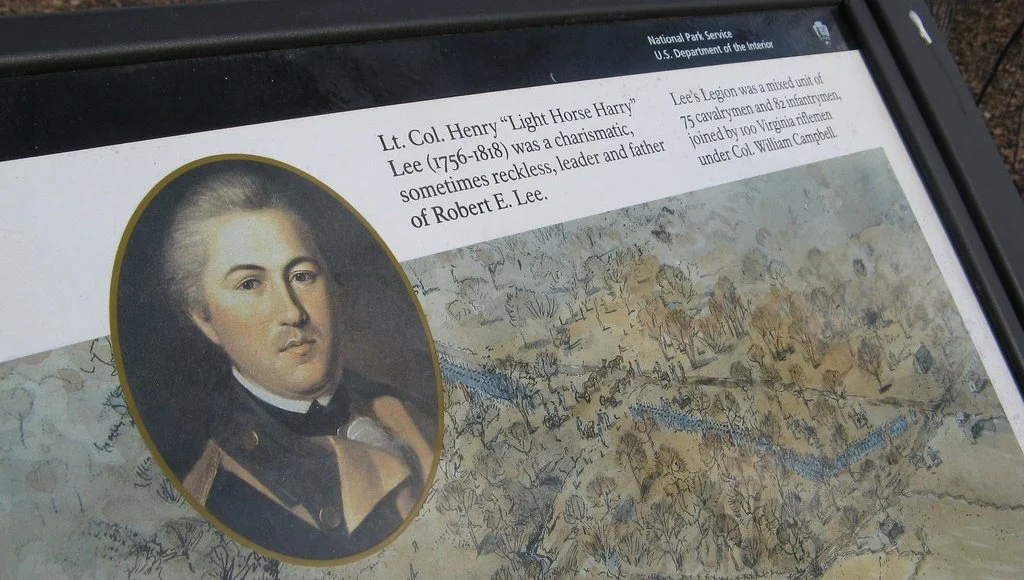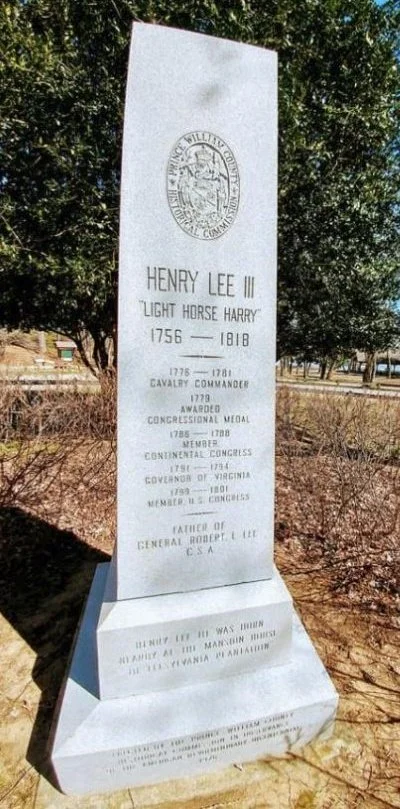Light Horse Harry
“My name is Legion, for we are many”
Subtle yet persistent forces have shaped the manner in which the Revolutionary War has become an American cultural icon. Once again, we can consider the historical treatment of Washington and Lee... not Robert E. Lee this time, but his father: Henry “Light Horse Harry” Lee III.
For a son to surpass the accomplishments of a famous father is rare enough. Robert E. Lee did, and in doing so he had some very large shoes to fill. The exploits of Henry Lee III and “Lee’s Legion” played a significant role in the victory of the revolutionary American forces over the British.
Lee himself won one of only 8 Congressional Gold Medals awarded by the Continental Congress. The medal was presented in recognition of his capture of the British-held fort at Paulus Hook, New Jersey along with its entire 400-man garrison on August 19, 1779. Major Lee and the regiment of Virginia Light Cavalry under his command suffered but a single casualty in the action.
Astonishingly, Lee was only 23 years old at the time! Just over a year later, Lee was promoted to the rank of Lt. Colonel and his expanded command, now known as Lee’s Legion, consisted of 3 troops of horse plus 3 infantry companies. In early 1781, Lee’s Legion was sent to South Carolina to support General Nathanael Greene, commander of the armies of the Southern Department.
The year 1781 saw great and small victories won and lost by both sides, with Lee’s Legion in the thick of the action. They took part in numerous battles across the Southern colonies, distinguishing themselves at Fort 96, Guilford Courthouse and the siege of Augusta, Georgia. When Lord Cornwallis surrendered his forces after the Battle of Yorktown, Lee and his Legion were there supporting Washington’s Continental army.
Lee’s sterling career continued after the end of the war. The grateful citizens of Virginia elected him to Congress in 1785 and again in 1799, and from 1791 to 1794 he served as Governor of the state. It is difficult to fully express the extremely high regard in which the citizens and soldiery of the time held Lee.
Perhaps a quote from the Journals of the Continental Congress praising Lee and awarding him his Gold Medal will suffice:
“Resolved, That the thanks of Congress be given to Major Lee, for the remarkable prudence, address and bravery displayed by him on the occasion; and that they approve the humanity shewn in circumstances prompting to severity, as honorable to the arms of the United States, and correspondent to the noble principles on which they were assumed.”
Times change, however, and regrettably nowadays Lee’s heroic and gallant service to his country is little known outside of Virginia. It may be that his parentage of Robert E. Lee had the effect of discouraging later writers and historians from crediting the elder Lee with the widespread appreciation he so rightly deserves.
by Steve Levenstein, 2006 ©RLinc



